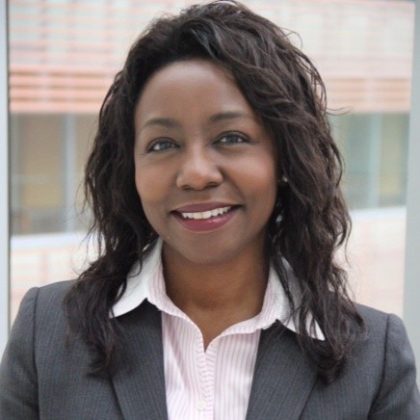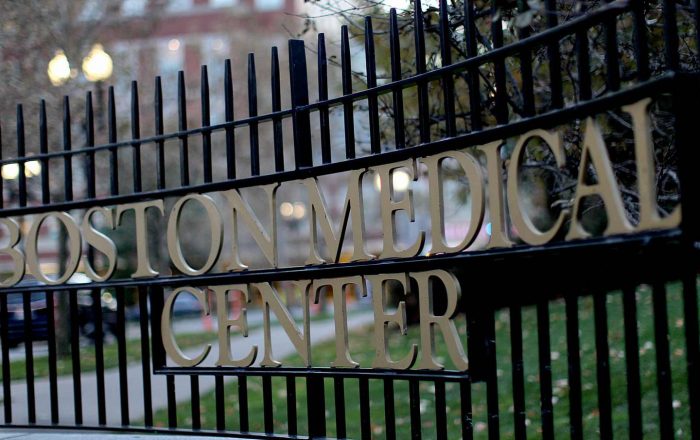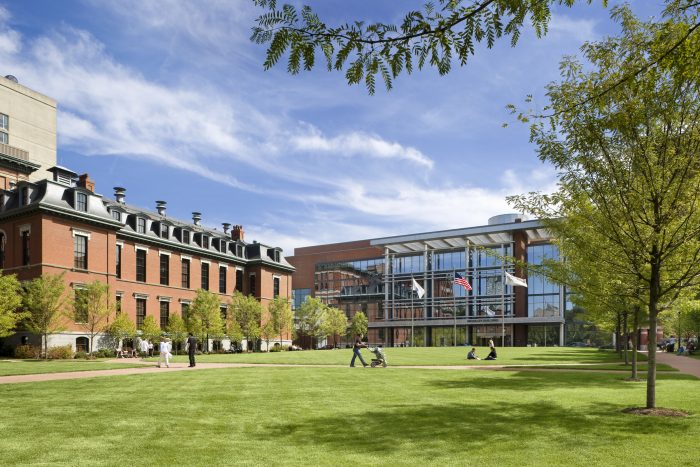In this month’s At the Helm, Victoria Jones spoke with Lisa Kelly-Croswell, Senior Vice President and Chief Human Resources Officer at Boston Medical Center. Lisa discussed the importance to her and to BMC of delivering with measurable accomplishments and staying ahead of the curve.
Victoria: You have a long background in the private sector. What was it about Boston Medical Center that drew you in?

Lisa Kelly-Croswell
Lisa: I feel like I was meant to be here! My background and interests have always connected to science and research: I came here from the biotech industry where I saw the end to end process of how medicine is discovered, developed and ultimately reaches the patient. Before that I was at CIGNA health insurance where I saw the impact of health access and health outcomes, and even before then, mostly in consumer goods, I was often dabbling in research. I like to say I made my way through the healthcare ecosystem. My time at Vertex also provided opportunities to precept which put me in direct contact with patients. Our drugs were for hepatitis C and cystic fibrosis. I spent time in hospitals and medical centers, meeting with patients who were dealing with these diseases and physicians who were treating them. It really put a face on health for me.
 And that became the door to BMC. The mission really spoke to me – not only in terms of who we serve, but also because it was a way to apply my experiences more up front to patients and connect in an even deeper way with humanity in general. So, that’s the healthcare ecosystem, and along with BMC’s commitment to exceptional care, without exception – it just felt like the right next piece.
And that became the door to BMC. The mission really spoke to me – not only in terms of who we serve, but also because it was a way to apply my experiences more up front to patients and connect in an even deeper way with humanity in general. So, that’s the healthcare ecosystem, and along with BMC’s commitment to exceptional care, without exception – it just felt like the right next piece.
What have you brought to this role that is distinctly you?
I’m a results and performance-oriented person. From my first job at Frito Lay, I saw the difference that prioritizing measurable results can make in terms of outcomes.
Sometimes, in the nonprofit world, people think that ‘mission’ and ‘measures’ can’t be in the same sentence. But for me, especially when it comes to human health, mission is not a slogan – it has to be a result.
BMC has a very authentic commitment to DEI. Now that we are in the middle of challenging ourselves to double down on this work, what are you striving to achieve?
I think about this in two lanes. The first is about bringing everything we are and everything we have to bear on health equity. We have six teams that have come together—from across the organization—to address various aspects of health equity for our patients and community. They are focused not only on physical health, but also on addressing social determinants of health, such as housing, food, employment and transportation. We’re identifying ways to help in these areas because we know that all of these things ultimately affect health in a very material—and measurable—way.

The second lane is about our internal DEI work and ensuring BMC provides a workplace where everyone thrives. I think this is a value and commitment we have been focused on all along – it is not new, and much of it happens organically, although there’s always opportunity to do better. Because of our patient population and what BMC stands for, we naturally attract people with this deep sense of purpose and commitment.
From my perspective, DEI should naturally be embedded in the fabric of who you are and what you do – and be less about titles and programs. We have discussed hiring a Chief Diversity Officer, and I have pushed back some on that idea. I’m not saying it’s the wrong decision, but I believe everyone here should act as a Chief Diversity Officer – that it should be present in every role and every action. That is my goal.
That said, we are trying to now be more intentional and build upon the good DEI work that is already in place.
Are there any initiatives BMC has implemented that you have found especially impactful?
We recently introduced something we call the Culture Code. This code includes things like “Stop. See the other person.”, “Missteps happen. So can growth.”, and my favorite: “Make it a 5-star hello.” I really believe in the power of looking someone right in the eye with a “good morning.” Our jobs are non-stop, and there’s a wide range of roles and people at BMC, all with different perspectives and experiences – we each have to truly see and recognize one another.
The idea behind the Culture Code is that if we’re all behaving—every day and in every moment—in a way that embraces what we want to be and stand for, then you’ll see transformation as great, or even greater than, any programming could provide. In my mind, it is “everyone, everyday.”
That gets us to the stress and trauma of this moment. How are you thinking about supporting BMC’s staff during a time when so many, and especially those in healthcare, are exhausted, anxious, and many even isolated?
Well, from a very practical standpoint, we have a strategic plan around resilience. People talk about resilience a lot; operationalizing it with specific actions is a different story. One of the near-term things we are using is ‘stress first aid’ – it’s an idea we borrowed from trauma response. We created a set of 15-20 guides and resources to help our staff, not only with work, but also with finances, childcare, education, etc. It goes far beyond the normal Employee Assistance Program, because what we’re dealing with is so beyond the norm. We also have a clinical social worker who goes directly to staff on a regular basis with a ‘resiliency cart’ stocked with coffee and snacks, the guides and resources, and actually talks with people about how they are doing. It’s on-the-spot resiliency services.
We also have an advisory group that includes psychiatrists and other healthcare professionals. We meet bi-weekly to create strategies to essentially make sure we’re ready to catch people when the adrenaline dips. It really hit home for me when our Chief Psychiatrist gave a talk at one of our leadership workshops, and said the data shows that about 20% of people are going to experience some sort of serious behavioral/emotional health concern as a result of the pandemic. And what will make it even harder is that many of those people will never have dealt with a concern of this nature before.
I think our job as leaders is to make it clear from the beginning that we care and that we are here. What we’re seeing is that no matter your personality, profession, or way of thinking, you will be impacted by the stress and trauma because you are human. We need to be there and be ready to help.
Which brings me to this idea of your responsibility as a leader. What are the tenets that you, Lisa, hold most dear in your leadership responsibilities?
The power of saying thank you is a big one for me. At BMC, throughout the pandemic, we have had staff recognition and engagement strategies that have been fantastic. But at the end of the day, the thing that seems to have the most impact is simply saying thank you – as often as we can.
And one that I have said so many different times and in so many ways can be summed up in two words: “do something.” It may not be the perfect thing and it may not be enough, but when there’s chaos, sitting around and talking is not the solution. I’m not saying don’t plan—I am a planner!—but I think that really strong leaders do something. The worst thing that will happen is you learn from your decision.
